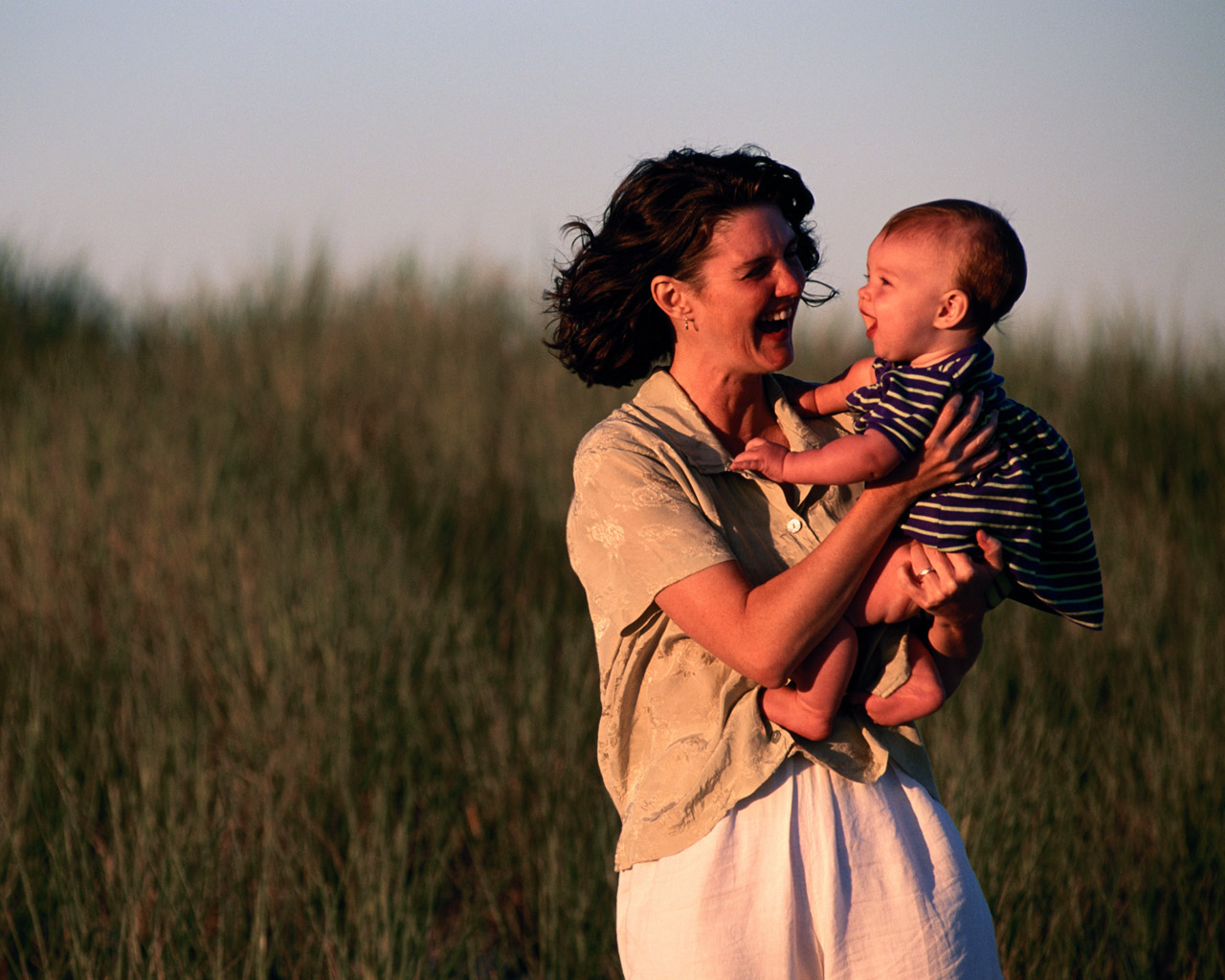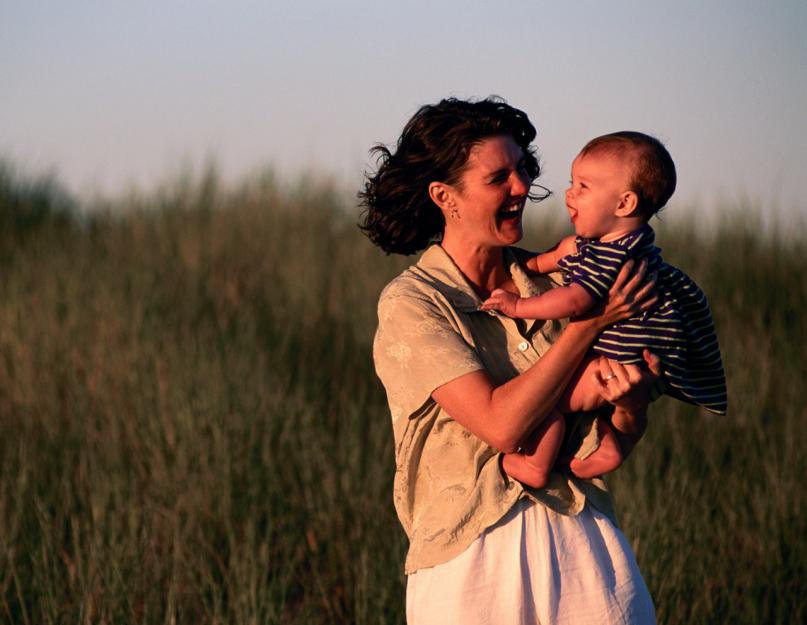We continue the series of publications of passages from the Book of Greek Psychologist Paul Kiriakidis "Family Relationships", the translation of which was made by the Matronius monothy. How are the roles in the family distributed?
A person lives in a variety of systems (for example, in the social, political, philosophical system, etc.), it depends on them, directly or indirectly being influenced. But, perhaps, the only system that most directly and significantly affects a person from birth and to deep old age is its so-called
Family is a system of relationship
In the family, not only its members themselves are important, but also relations and relations between them. In other words, for the family matters not only its structure, but also the organizationwhich depends on the ways to interact its members. Moreover, none of the phenomenon of family life cannot be studied and interpreted as a separate element, but always only in relation to the entire system of a particular family.
Family members are usually interconnected with each other very strong uzami. These relationships are much stronger than may at first glance seem. The influence of the family is happening even after removing from it: a person can leave the family, but this distance will be only "physical", bodily. In psychological and spiritual terms, he will never leave the family from which its origin is underway. From a psychosocial point of view, a person all his life is part of the family from which it came out, as well as the family he himself created. This continuity of generations is called rod.
One of the distinguishing features inherent in the family as a system is the fact that marriage and family life, of course, put certain restrictionsthe freedom of each family members, but at the same time, the family, in turn, is responsible for each of his member. It is impossible to be absolutely "autonomous" in the family, since its members are in constant physical, social and psychological interaction, they depend on each other, they need each other. At the same time, the family must provide its members, firstly, personal spacein which they would be cozy and comfortable, where they would feel free and could relax and relax, and secondly, confidence in obtaining emotional heat, protection and supportWith which a person is hard to mature and manifest itself as a person.
The second most important quality of the family as a system is her dynothy and variability. The family by nature is not static. Any change that occurs with one of the family members does not directly affect everyone else. Similarly, the change that occurred from the whole family as a whole affects each family member separately. One of the types of such changes is change role family members.
Family roles
According to sociological definition, social role - This is a combination of samples of behavior that others expect from a person. Each person plays many roles, depending on the social environment in which he lives. From the point of view of sociology, the roles are divided:
- on belonging to K. "Natural Status" (Gender, age and, in general, all that relates to the biological essence of a person) and
- those who relate to his "Acquired Status" (for example, a profession, membership in any club, etc.).
By marrying, each person receives a new role that becomes dominant in relation to what he has so far. The roles of a son or daughter, closely related to the parental house, weaken, because the children grew up and now became spouses. With the birth of children especially important becomes parental role Both spouses, which is of great importance for normal family life.
Family is a system that can only function correctly if each family member knows his role or learns to perform the roles that other people are waiting for him. In the "expanded", the traditional family younger members will learn not only their role, but also the role of many other family members.
Everyone in the family receives his identity. He realizes who he is, what other people are waiting for him, understands that he himself want to get from others, how to achieve confession first as part of his family, and then in society. Family should take on the main task education and socialization child. At the same time, in modern conditions, other social institutions - the media, kindergarten, school, etc., give their behaviors. Since small years, children can affect the alien to the particular family mentality and ideas about life. And, nevertheless, no matter how much the society affects the idea of \u200b\u200ba person about his identity, it is in the family that the boy is preparing to become a man and father, and a girl is a woman and mother. An example of the senior family members helps younger get identity of their gender And learn to play relevant social roles.
In the family, as in other social groups, takes place interdependence of role, for example, son-son, mother's daughter, grandson grandfather. Without grandchildren there can be no grandfather, and without a son or daughter, a person cannot play the role of father or mother.
Proper distribution of roles and responsibilities Between family members helps her function normally. It is very important that every member of the family knows the role of others well, and that his behavior consists of this knowledge. No role can be separated and independent of another. All the roles of each family member are connected to all roles that other members play. How many more fewer are borders of each role In the ideas of all members of the family, people can communicate with each other so more efficiently, while not leaving the possibilities for loss or attempts to mislead the behavior of a person in the family.
Rings denial or confusion Often leads to big problems. For example, many conflicts between spouses comes from the fact that the other family member is fully imposed responsibility, which, in fact, is a common responsibility. Family conflicts They have their own appearance that people do not know how - or do not want to distribute family roles and fulfill them well.
Over time occurs change of the ideas of society about a particular family role, also a person in his life is physically, mentally and socially developing, thanks to which its social family roles change. This is an expected and natural process, which, however, is associated with a number of problems and is not always positive.
German philosopher and sociologist Max Horcheimer wrote: " Perfect modern mother Plans to raise his child almost across scientifically, starting with strictly balanced nutrition and ending with as strictly defined and calculated by praise and punishment, which is advised by all popular books on psychology. The behavior of the mother in relation to the child becomes more and more rationalistic, women perceive their maternal role as profession. Even love becomes a means of pedagogy. Spontaneity, natural limitless concern and maternal heat in relation to children disappear. " 
The modern "nuclear" family places a woman - a spouse and a mother - a number of complex and heavy roles, with which she can not cope with her alone. A man - a spouse and father - begins to participate in various works on the house. As a result, the border between the roles of a man and a woman in housekeeping less noticeable, although this role is still traditionally considered female. That is why in the family when discussing the problems associated with the duties of the house should prevail a sense of responsibility and love men.
I would like to pay special attention to the role of the Father in a modern family. Many men fulfill this role very "fragmentary". Why is this happening? A man can too devote himself to work, as a result of which the family is "lost". Or he does not attract family leisure, rest with the whole family. Maybe he "runs away" from the family because of the behavior of the spouse, some family problems that he is unable or does not want to solve, etc. Sometimes a man is infantile, he still considers himself a part of the parent family depends on her and Does not have personal "autonomy." Bad domestic conditions can also be caused or a reason for the desire of a man being out of the house aboutthe rest of his time, and therefore, to fail to fulfill their duties towards the family.
In some cases family members play not the roles that, theoretically, would have to, but those who force them to play circumstances (For example, the work of small children, the parent role of grandparents and grandmothers, etc.). When part of the parent role is shifted to one of the children in the family, it may be simultaneously the familiar to the family in certain circumstances, and the beginning of large psychological problems between this child and his brothers and sisters. The child, the "acting" mother or father, will have to overcome the envy, the unwillingness to obey, and sometimes the hatred of other children ...
Another problem associated with variation or blundering roles is communication with the elderly in the family. Communication of grandchildren with grandfathers and grandmothers is a necessary and joyful aspect of family relationships. At the same time, the communication of senior family members with a young couple is usually filled with friction and conflicts.
Grandparents, as the most senior family members, occupy today honorable, although not the main thing in a family hierarchy. Nevertheless, their behavior is often interpreted by family members as not quite adequate and causes their own children a feeling of bewilderment or irritation. Most often for such actions and such a co-reaction andty again the inability of each family member competently distribute the family roles or in time to realize and adapt to the change of their roles.
One of the problems of changing the roles in the family is the so-called "Gap generations". In the widest and most exciting sense, personifies the eternal struggle of the old and new. It is natural to expect that children will have their own ideas about the world and their place in society, which differ from the opinions of the elders. Perhaps this conflict can be called not "Collision of Roles", and "Collision of points of view"available for each generation. Parents and children seem to look at the world "from different bells":
|
PARENTS |
CHILDREN |
| 1. More conservative. | 1. Open new one. |
| 2. Store tradition. | 2. Initially configured against traditions. |
| 3. Worried about the future of your children. | 3. They are interested in the present. |
| 4. Defenders of traditional morality. | 4. They consider any morality possible for themselves. |
| 5. More incredulous. | 5. Gullible. |
| 6. They are needed, first of all, safety. | 6. They are attracted by adventure and risk. |
| 7. They strive for calm and silence. | 7. They like noise. |
| 8. Screens in the experience of their lives. | 8. Ready for any new experience. |
| 9. Care about the order, etc. | 9. Different with carelessness and disallocurity. |
| 10. Restrict themselves with religious values. | 10. They are characterized by liberty and licenses. |
| 11. Worried about what Society says. " | 11. They are indifferent to the society. |
| 12. The priority task is "family benefit", even when it is achieved not quite honest. | 12. Do not take dishonest and ignorable deeds. |
One of missions Each families - Help children put your goals in lifeand teach them to be persistent in their achievement. Parents who do not give their children nothing but money and pleasures create in them a big psychological emptiness, especially dangerous in adolescent and post-good age.





